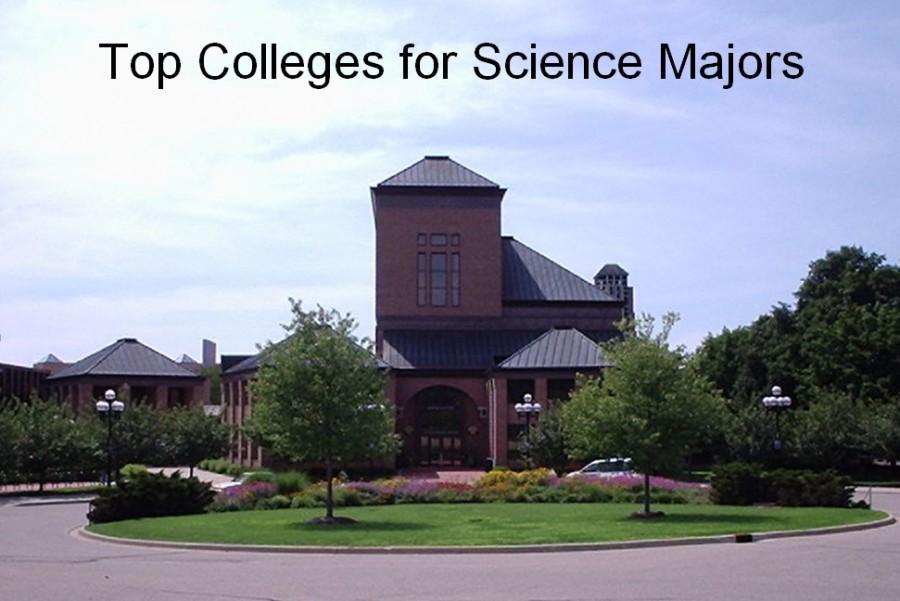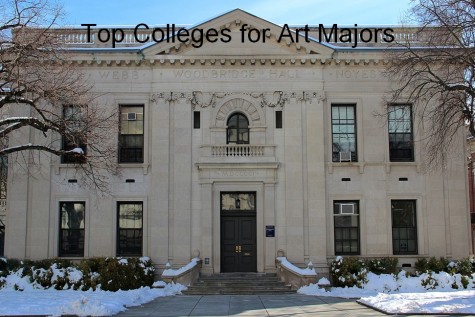College Majors Series: Science majors can find jobs in healthcare
The University of Michigan serves science majors well
The staff of the Eclipse is writing a series about the most popular majors in the United States and the colleges that offer the best programs for them. This is Part Two of a 5-part series.
Nursing
Registered nurses work directly with patients. They provide treatment, evaluate, and monitor a patient’s health.
A nursing degree can be used in many work environments from hospitals to doctors’ offices.
An associate’s degree in nursing, the minimum requirement to become a registered nurse, takes two years. Afterward, most students go on to specialize in careers such as a nurse practitioner or nurse anesthetist.
The top 10 colleges in the United States for a nursing degree are:
- Johns Hopkins University– $63,529
- University of Pennsylvania– $64,200
- University of Washington– $48,231
- University of California San Francisco– $44, 351
- University of North Carolina Chapel Hill– $50,938
- University of Michigan Ann Arbor– $26,984-$55,404
- Duke University– $63,530
- Oregon Health and Science University– $55,740
- University of Pittsburgh– $43,360
- Yale University– $63,250
According to the Bureau of Labor Statistics, the average pay for a registered nurse in 2012 was $65,470.
Mrs. Kandy Cousins teaches biology, ecology, and human anatomy and physiology.
Cousins said nursing is great for any student who wants a reliable career and enjoys classes like HAP.
“Human anatomy and physiology is foundational and required for nursing,” Cousins said. “Students that have chosen HAP as an elective are well prepared for the rigor of a college-level anatomy class.”
Human anatomy and physiology is foundational and required for nursing — Mrs. Kandy Cousins, biology, ecology, and human anatomy teacher
The demand for nurses is increasing across the country because people are living longer.
Cousins said, “There is and there will continue to be a state and national shortage of RNs.”
A nursing degree requires dedication and the ability to be efficient at many different tasks.
Biological Sciences
A biological science degree is the basis for many careers. Many students who get a biology degree go on to specialize in subjects such as human, animal, or molecular biology.
Depending upon the program, a biology degree usually takes four years to complete. Students who go on to specialize in biology may get a master’s degree or a doctorate.
Those who enjoy science classes like biology and human anatomy would find an interesting career with a biological science degree.
The top 10 colleges in the United States for a biological science degree are:
- Harvard University– $58,607
- Massachusetts Institute of Technology– $61,030
- Stanford University– $62,801
- University of California Berkeley– $35,470
- California Institute of Technology– $60,990
- Johns Hopkins University– $63,529
- University of California San Francisco– $44, 351
- Yale University– $63,250
- Princeton University– $58,965
- Scripps Research Institute– $60,370
Students must be good at independent and group lab work.
Biology classes in college are usually divided between class lectures and labs.
Mrs. Leah Thomas teaches biology and encourages students to pursue a degree in biological sciences.
Thomas said a few of her students have expressed an interest in medical professions such as veterinarians and physicians. To get these specialized degrees, students usually get a bachelor’s degree in biology.
“If it doesn’t seem like studying anymore, but rather you actually like learning and reading about it, then you’re in the right field,” Thomas said.
Biology degrees are diverse. They are a good fit for students who enjoy science but have not found a specific career choice yet.
Healthcare Administration
A degree in healthcare administration can lead to a career in medical and health services management.
Depending on the size of the facility, a health services manager may oversee building-wide operations and make decisions concerning the building as a whole.
Students who would like to work in a healthcare setting but do not want to work in the medical field may enjoy a career in healthcare administration.
The top 10 colleges in the United States for a healthcare administration degree are:
- University of Michigan Ann Arbor– $26,984-$55,404
- University of Minnesota Twin Cities– $20,876
- University of North Carolina Chapel Hill– $50,938
- University of Pennsylvania (Wharton)– $64,200
- University of Alabama Birmingham– $26,176
- Virginia Commonwealth University– $39,776
- Northwestern University (Kellogg)– $65,554
- University of Washington– $48,231
- Rush University– $41,876
- St. Louis University– $59,608
According to the BLS, the median annual salary for medical and health service managers in 2012 was $88,580.
A healthcare administration degree takes about four years to complete, and some students go on to get a master’s degree.
Students who would like to become a health and service manager need to have good communication and organization skills. Most often they are overseeing a large hospital or healthcare facility and must be able to smoothly handle any situation that arises.
Healthcare administration is a growing field since the population is constantly growing and people are living longer. Healthcare buildings, such as hospitals, must grow as well.
Sociology
A sociology degree has many career options, including business, government, and corrections.
Sociologists research and test theories through interviews, surveys, and observations. They must be good at analyzing data and thinking critically.
Students can get a bachelor’s degree in sociology, but most sociologists get a master’s degree or doctorate.
Sociologists work at universities and R&D facilities where they can get funding for research projects.
The top 10 colleges in the United States for a sociology degree are:
- Princeton University– $58,965
- University of California Berkeley– $35,470
- University of Wisconsin Madison– $41,366
- Stanford University– $62,801
- University of Michigan Ann Arbor– $26,984-$55,404
- Harvard University– $58,607
- University of Chicago– $66,435
- University of North Carolina Chapel Hill– $50,938
- University of California Los Angeles– $56,077
- Northwestern University– $65,554
The median pay for sociologists in 2012 was $74,960.
Mrs. Joni Medemar received her degree in history and social science. Medemar has taught sociology for many years.
“I currently don’t teach sociology, but I made sure I covered all the areas that they would need for their first year sociology classes,” Medemar said.
Medemar said that a college’s majors and its price are important when choosing a college degree.
“All the major colleges in Michigan are good. Just make sure you like the atmosphere of the campus,” Medemar said.
Sociologists are needed to further sociological research and understand human relationships.

Class: Senior
Clubs: National Honor Society, St. Mark Lutheran Youth Group
Hobbies: Reading, Talking, Watching movies, Hanging out with friends
Future...
























